North Carolina provides decades of data on homeschool participation, which is disaggregated by county and age.
History
In the southern United States, North Carolina legalized homeschooling in 1988. Homeschools are considered a type of private school, either religious or nonreligious.
Regulation
North Carolina provides a detailed website for homeschool parents with a guidebook and other information. The state offers one option for homeschooling. Parents electing to homeschool their children, ages 7 to 16, must notify the Division of Nonpublic Education and update the notice annually. This office may inspect records, including attendance and testing, although this inspection appears to occur outside the home. A home school cannot educate children from more than two families and must select a school name. Procedures for name selection are spelled out in the guidebook. Parents are expected to operate the school for at least nine calendar months. No specific subject instruction is required.
Parents who direct their children’s education at home must have a high school diploma or GED. Homeschooled students must take a “national standardized test” annually. The results must be retained and provided for inspection upon request. Interestingly, the North Carolina state test is neither required nor meets the homeschool testing requirement. This is because the state tests are not nationally normed.
North Carolina provides no access for nonpublic students, including homeschooled students, to educational opportunities at their local public schools. In fact, it is one of a small handful of states across the U.S. that provide zero access. North Carolina homeschooled students are not eligible for special services since they are no longer enrolled in public schools.
State Data
Homeschool growth in North Carolina over the last decade is strong. For example, around 33,000 students reported homeschooling in 2000 and increased to 83,000 by 2010. At the height of the pandemic, homeschool counts in North Carolina hit nearly 180,000. Data on homeschool participation by county and age are also available.
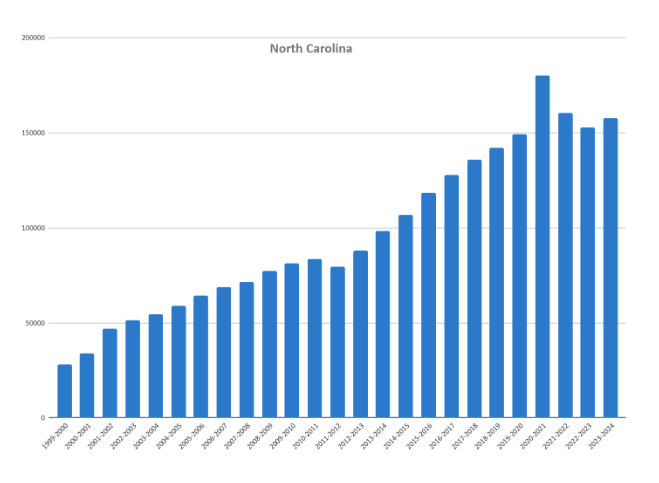
Similarly, U.S. Census estimates indicate that around 5.0% of North Carolina families homeschooled in the spring of 2020 and increased to 9.4% by the fall of 2020. This is just under the national estimate of 11.1% at the time. Based on U.S. Census data, our calculations indicate that about 7.72% of K-12 students in (state) were homeschooled during the 2022-23 school year, and 6.75% during the 2023-24 school year. Due to survey changes, the data from 2020 reflects the percentage of households, while the data from following years reflects the percentage of students.
Cross-Sector Comparison
During the 2019-20 academic year, 8.1% of North Carolina’s K-12 students were homeschooled. This percentage is one of the highest in the nation. Homeschool participation in the state was higher than both the 6.6% of students attending private schools, and the 6.4% of students attending charter schools. In 2021-22, 8.9% of North Carolina’s K-12 students were homeschooled, 7.0% attended private schools, and 7.3% attended charter schools.
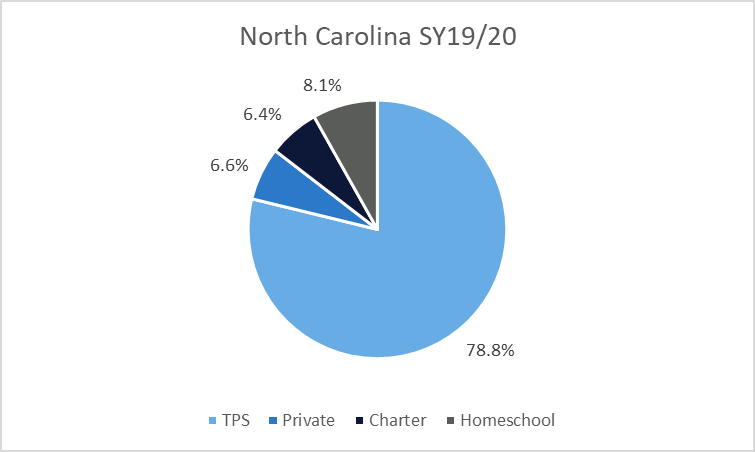
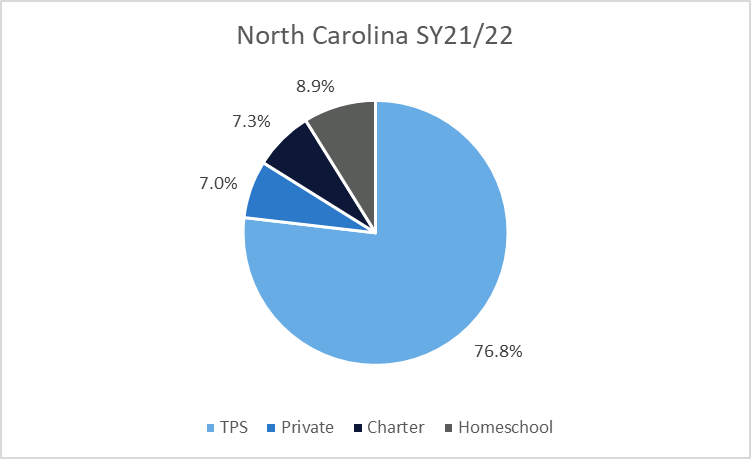
School Choice Context
In addition to homeschooling, parents in North Carolina have various educational choices available. These options include traditional public schools, charter, and magnet schools. North Carolina is one of few states with no inter- or intra-district enrollment options for public school students. There are two private school choice options, including an educational savings account for students with special needs.
Commentary
The homeschool testing requirement holds homeschool students to a higher standard than public school students in the state. Public students do not test annually, and they do not take a nationally normed assessment.
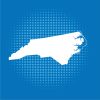
-
9.4% Families
Around 9.4% of families in North Carolina homeschooled during the height of the pandemic (Fall 2020).
-
1988 Legalized
Homeschooling was legalized in 1988 in the state of North Carolina.
-
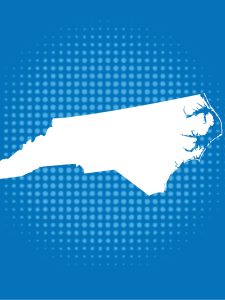
-
More Information
9.4% Families
Around 9.4% of families in North Carolina homeschooled during the height of the pandemic (Fall 2020).
1988 Legalized
Homeschooling was legalized in 1988 in the state of North Carolina.

More Information
Last updated March 2025.